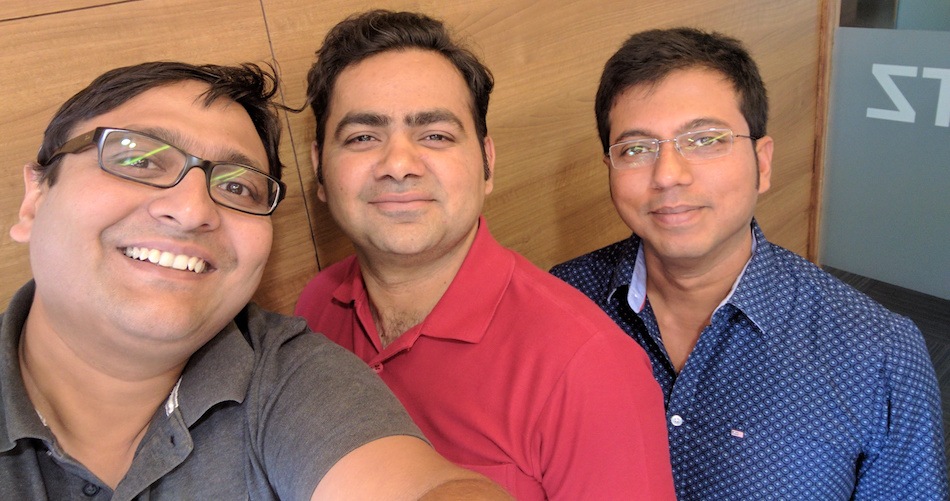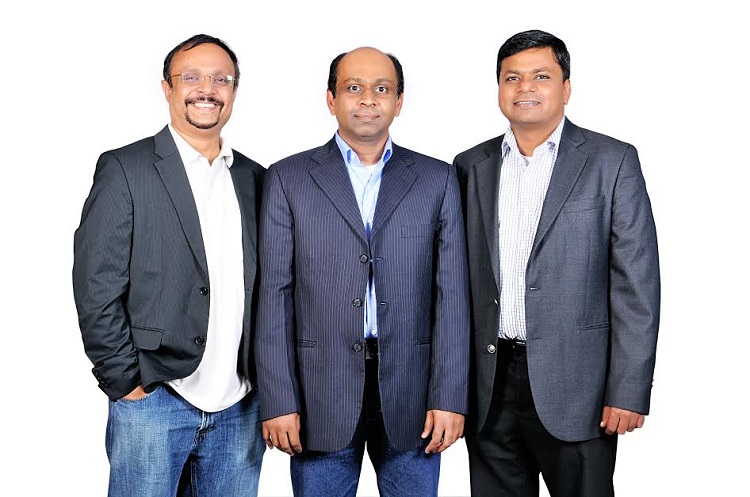
Today is a red letter day for new age software products out of India. SigTuple became the country’s highest funded healthcare AI startup, with a US$5.8 million series A round from marquee investors – including Uber senior VP Amit Singhal who earlier built Google Search. And one of the largest series A rounds for an industrial IoT startup anywhere in the world went to Bangalore-based Flutura. This too had a smart set of investors with great clout from Singapore and the US.
This is a different India from the one I saw as a reporter back in the eighties and nineties. That India was dubbed the world’s back office because of its legacy of IT services. ‘Bangalored’ was coined to describe outsourcing.
India’s IT giants did put Bangalore on the world stage as a tech hub, and IT services account for 10 percent of the country’s GDP today. But it also has negative connotations.
In IT services, you tend to become order-takers, rather than visionaries.
India got stuck at the lower end of the tech value chain. Droves of engineers were channeled into services for clients abroad instead of building innovative Indian software products. It’s only when they went abroad that the innovative and entrepreneurial side of Indians came to the fore. The world’s biggest software product companies have Indian CEOs – Google, Microsoft, and Adobe. Silicon Valley is teeming with Indian entrepreneurs.
Those who chose to return to India felt frustrated by the lack of a supportive ecosystem for innovation and entrepreneurship. Even the early startups were mostly me-too ones aping similar companies in the West. This, despite the proven quality of Indian tech talent abroad.
See: Why India must fix its obsession with software services and pivot to products
But change is in the air. Engineers from India’s premier tech colleges are choosing to stay back in India. And they want to work for startups or start companies of their own. IT services companies and development centers of multinational companies find it harder to retain those who are innovative and entrepreneurial in spirit.
India has already emerged as a global hub for enterprise software on the cloud. Companies like Zoho and Freshdesk have become leaders in their spaces, winning clients all over the world for their software products made in India.
Chennai is known as the SaaS (software-as-a-service) capital of India, where experienced entrepreneurs are passing on their insights to newbies. The value proposition is compelling: frugal innovation. Top quality software products built locally and delivered over the cloud to global markets at lower price points are hard to beat.
See: How this pioneer built a SaaS hub in Chennai from scratch without VC money
Competing with the best in the world

SigTuple co-founders Apurv Anand, Rohit Kumar Pandey, and Tathagato Rai Dastidar. Photo credit: SigTuple.
The US$13.3 million investment in an AI startup and an industrial IoT startup today is another inflection point. AI and IoT are emerging areas of hi-tech. The backing of Flutura and SigTuple recognizes that Indian tech has the caliber to take on the best in the West in this brave new world.
India can provide innovation blowback to the rest of the world if the tremendous untapped potential here is released.
“India can provide innovation blowback to the rest of the world if the tremendous untapped potential here is released,” Sharad Sharma, co-founder of iSPIRT (Indian Software Industry Round-Table), a non-profit think-tank and mentoring organization, had told Tech in Asia in 2014. We’re finally seeing that happen with cutting edge tech and not just SaaS.
The years 2014 and 2015 were awash with hedge funds from east and west aiding local companies in an ill-conceived discount-led market grab in the consumer internet space. Last year was a reality check, when it became apparent that customer loyalty could not be bought when faced with cash-rich global rivals active and free to operate in the local market. Tiger Global beat a retreat, leaving Flipkart in the lurch, and SoftBank wrote down its investments in Snapdeal and Ola. These companies are seeing an exodus of top management, and big layoffs are likely to follow if their valuations and funding outlook don’t improve soon.
See: Thrillers to tragedies: India’s failed ecommerce pioneer on what ails Flipkart, Snapdeal
The big IT services companies, too, are struggling to turn their Titanics in time to avert hits to their manpower-based bottom lines from digitization and automation. The retired Infosys founders’ criticism of the current board and CEO this week is symptomatic of a deeper malaise and indicates the challenges of transitioning to a new era.
It is startups like Flutura and SigTuple operating at the cutting edge of tech who are better placed now to build India into a global hub for innovation. Smart money seems to see the potential in this, and it may be the defining attribute for the Indian tech ecosystem this year.
See: 45 hot software product startups from India and their cool ideas
Paving the way for others

From left – Derick Jose, Krishnan Raman, and Srikanth Muralidhara, co-founders of Flutura.
The two startups have some interesting parallels, apart from taking a chance in new age tech domains. The three co-founders of Flutura – Krishnan Raman, Derick Jose, and Srikanth Muralidhara – worked together at IT services company Mindtree in Bangalore, where they rose to senior positions. They worked on India’s unique citizen ID project Aadhaar, which involved massive data architectures to accommodate the scalability needed to handle a population of 1.3 billion and growing.
The biggest challenge they faced when they started out in 2012 was not in tackling a hi-tech domain like the industrial internet which was just emerging. They were confident of building a robust product that would use machine learning and data analytics (with deep learning coming in later) to monitor and predict problems in industrial machines to make them more efficient and cut downtime.
It’s nice to see India among the top three destinations in the world for an industrial IoT product.
Their challenge was in transitioning from a IT services mindset to a software product space. “In services,” Krishnan explains to me, “95 percent of the time, the vision part of the solution is already thought out by the customer. Here you tend to become order-takers, rather than visionaries. We were a little more fortunate because we did a fair amount of consulting work at Mindtree.”
Even the so-called business analysts at IT firms rarely apply their minds to adding business value. Their main focus is on capturing the details and granularity of the customer’s requirement. So, although it may seem like an easy shift for India’s techies to move from software services to tech startups building innovative products for the world, that’s not the case. A tiger born in a zoo finds it hard to survive in the wild. Flutura did, and its kills now span the US, Europe, and Japan.
It did take time – and many highs and lows, as Krishnan recollects – to build a full-blown IoT product, using client dollars from analytics. It needed patience to wait for the industrial internet to arrive. These are not the typical fresh-out-of-college entrepreneurs popularized in startup folklore, points out Rohit Bhayana, managing partner at US-based Lumis Partners that invested in Flutura. “Krishnan, Derick, and Srikanth are battle-hardened entrepreneurs, and it’s nice to see India among the top three destinations in the world for an industrial IoT product like theirs,” Rohit tells Tech in Asia.
See: This IoT startup is competing with GE and winning. Here’s how.
For the three SigTuple founders – Rohit Kumar Pandey, Tathagato Rai Dastidar, and Apruv Anand – it was a multinational corporation’s lab in Bangalore that gave them an early exposure to new technology. They built the big data stack for American Express, and started dabbling in the related field of artificial intelligence on their own, before striking out as entrepreneurs.
Their product uses artificial intelligence to do the work of pathologists – reducing the time and cost of diagnosis, and also making it more accurate and easily verifiable. The two-year-old startup has achieved a significant validation from the local market and marquee investors, but the main challenge lies ahead: cracking the global market.
See: An artificially intelligent pathologist bags India’s biggest funding in healthcare AI
The success of companies like Flutura in IoT or SigTuple in AI can establish India as a place for innovative software products – and not just a service provider. “We can expect this to become a trend where IT services executives are able to make that shift. Then we’ll see a number of leading software products for the world from this country. Flutura shows the shift is possible,” says Ben Mathias, India head of Vertex Ventures, the lead investor in Flutura.
This is an opinion piece.
This post AI and IoT are the flavor of the day – not IT services or ecommerce appeared first on Tech in Asia.
from Tech in Asia https://www.techinasia.com/ai-iot-products-from-india
via IFTTT
No comments:
Post a Comment